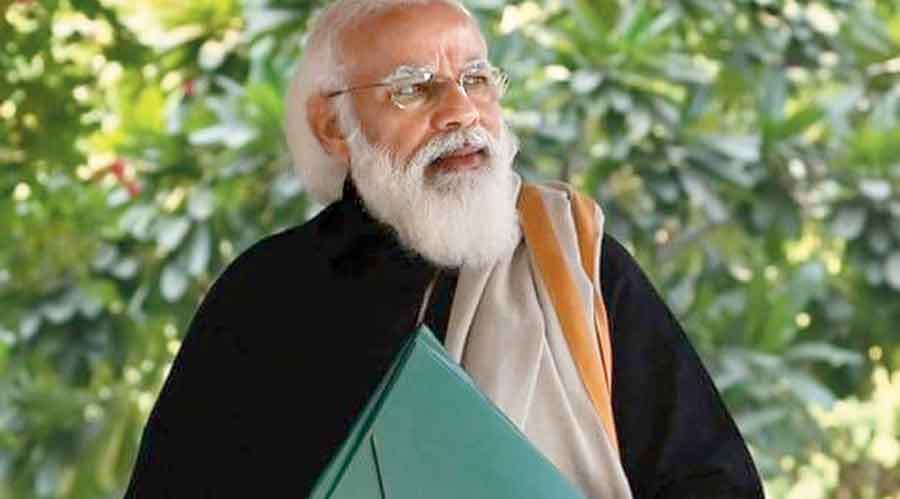The pheran, Kashmir’s traditional winter wear, appears to be too hot to handle for some in the government.
Hours after the fledgling IIT Jammu “proudly disclosed” on Friday that its first batch of graduating students would wear pherans and pakols (woollen caps) in a nod to Jammu and Kashmir’s art and culture during its first convocation on Saturday, Jintendra Singh, the minister in Narendra Modi’s PMO and an MP from Jammu, tweeted that “sensitivities” with regard to the proposed dress had been conveyed to the institute director and he had agreed that “only” the “conventional convocation gown” would be worn.
However, videos of the convocation circulating on social media showed that the teachers and students may have chosen a middle path — opting for a dress that appeared to be a cross between the western convocation gown and the pheran.
Neither IIT Jammu director Manoj Singh Gaur nor any other IIT official responded to calls from The Telegraph on the dress the institute chose for the convocation.
At a media conference on Friday, the chairman of the board of governors of IIT Jammu, Prof. Sharad Kumar Saraf, had “proudly disclosed” that the dress code for the convocation “ceremony has been inspired by the art and culture of Jammu and Kashmir” due to which “traditional convocation robes have been replaced with pherans and pakols”.
Saraf said the idea behind the choice was “an ode to Jammu and Kashmir” and its culture.
The pheran, a long loose garment that has a cut at the top, is worn by both Muslims and Pandits in the Valley to fight the biting winter cold. Many in Jammu’s Muslim-dominated Chenab Valley and Pir Panchal regions also wear it. The pakol is a woollen cap, which some people in Jammu claim is of Afghan origin.
Hours after the media conference, PMO minister Singh, who represents the Kathua-Udhampur-Doda parliamentary constituency in Hindu-majority Jammu, tweeted: “Important! Sensitivities with regard to dress proposed for IIT Jammu Convocation ceremony were conveyed to higher authorities. I have just now received a call from Director IIT Jammu, Prof Gaur, clarifying that it will only be conventional convocation Gown, no other attire and no cap.”
Singh mentioned neither the “pheran” nor what he meant by “sensitivities”, but the IIT’s decision had faced criticism from a section of people in Jammu, who opposed the wearing of a Kashmiri dress in the “land of Dogras”, a reference to Jammu’s Hindus.
Many pointed out that Singh may not have got the memo as his boss, Prime Minister Narendra Modi, had chosen a dress resembling a pheran during a TV address to the people of Jammu and Kashmir while launching a health insurance scheme for the residents of the Union Territory a fortnight ago.
Some others also recounted that the central government itself had in 2018 asked universities across the country to replace the conventional convocation gown with “traditional Indian clothes” as a tribute to Mahatma Gandhi.
Former chief minister Omar Abdullah regretted the intervention by the minister.
“Can’t even tolerate a pheran and this government wants Kashmiris to believe that it’s looking out for our sentiments & feelings. PMO intervened to have the dress code changed & that too just days after the PM addressed a function in Srinagar wearing a pheran,” Omar tweeted.
At Saturday’s convocation, the first batch of 79 IIT Jammu students from mechanical, electrical and computer science engineering were awarded degrees.











